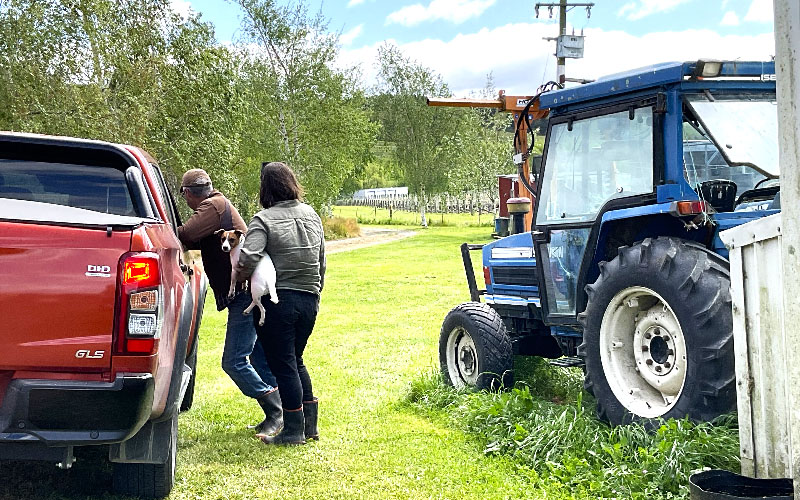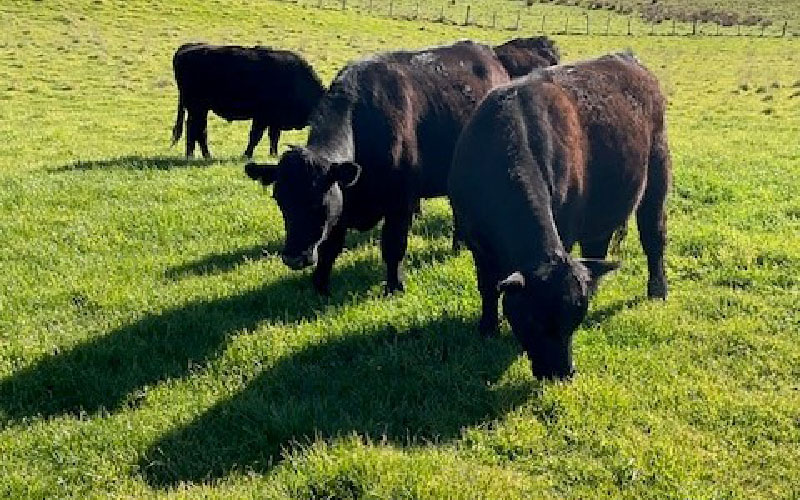Support and Guidance /FAQs

Council is here to support farmers in the implementation of Freshwater Farm Plans. In the months ahead, staff will be available to advise landowners over the phone or in person, as well as ensuring this page is updated with information as it is received. Council also plans to run meetings, workshops, and one-on-ones with farmers to answer any questions.
How much will this all cost?
The cost of developing a plan will vary for each farming operation and will be dependent on whether the farm operator completes it themselves or works with a consultant. Certifiers and auditors will set their own costs for farmers to cover.
As Freshwater Farm Plans roll out in other regions, we will get a better idea of potential costs.
Council can help provide landowners with information and advice on their waterways through the Catchment Condition Survey.
There is also some funding available for mitigation strategies in high-priority catchments.
Is there a Freshwater Farm Plan template?
Because every farm is different, there is no one-size-fits-all template for developing a Freshwater Farm Plan.
However, industry developed templates may be developed over time. You’re welcome to use such templates as long as they meet the Freshwater Farm Plan certification requirements. See Appendix 2 of Developing a Freshwater Farm Plan for a list of these requirements.
Appendix 6 of the developing a Freshwater Farm Plan guidance document also includes some example tables that may be useful for developing your farm plan. However, these do not represent a complete template.
I already have a Farm Plan/Farm Environment Plan. Do Freshwater Farm Plans align with this?
Whilst your existing farm plan is likely to have a lot of information that can be incorporated into a Freshwater Farm Plan, it is likely that your farm plan will need to be updated to fit the requirements of the Freshwater Farm Plan regulations.
You will be able to get your catchment context, challenges, and values information from the Council website.
MDC can also support in providing data and maps, as well as mapping of waterways for landowners in some catchments.
Can I complete a Freshwater Farm Plan on my own or do I need to pay a consultant?
Farm operators are welcome to produce their own plans for certification. Guidance is available to support farmers to do this. However, we expect that many farm operators will engage a rural professional to create the bulk of their first Freshwater Farm Plan to ensure it meets the minimum requirements.
Your industry group may have options to help you with the development of your Freshwater Farm Plan as well. We are working with industry to provide guidance and support to the farming community.
Where can I find help to develop my Farm Plan?
Council is working with industry to ensure they have the tools and training to help develop Freshwater Farm Plans.
Council will be providing the catchment context, challenges, and values for Freshwater Farm Plan.
Council staff are also available to answer questions, provide information and advice around Freshwater Farm Plan to farmers.
How do Freshwater Farm Plans interact with regional rules?
All farmers must still comply with the regional rules.
Once it’s been certified, how frequently will I need to get my Freshwater Farm Plan audited?
The better you do at sticking to the action plan set out in your Freshwater Farm Plan, the less frequently you’ll need to be audited.
| Grade | Description | Next Audit within |
| A | All actions categorised in the action plan as regulated actions, catchment actions and supplementary actions have been implemented within the timeframes required under the action plan | 3 years |
| B | All actions categorised in the action plan as regulated actions, catchment actions have been implemented within the timeframes required under the action plan, but one or more actions categorised as supplementary actions have not been implemented within the required timeframes | 2 years |
| C | All actions categorised in the action plan as regulated actions have been implemented within the timeframes required under the action plan, but one or more actions categorised as catchment actions have not been implemented within the required timeframes | 1 year |
| D | One or more actions categorised in the action plan as regulated
actions have not been implemented within the timeframes required under the
action plan.
One or more actions categorised in the action plan as catchment actions or supplementary actions have still not been implemented within the timeframes required under the action plan following a subsequent audit. | 6 months |
What’s the difference between a regulatory action, a catchment action, and a supplementary action?
Regulated action refers to actions that:
a) address risks to freshwater and freshwater ecosystems
b) relate to relevant requirements under legislation, for example the NES-FW, Stock Exclusion Regulations, pMEP etc.
Catchment actions means:
a) actions that address risks to freshwater and freshwater ecosystems that directly relate to the catchment context, challenges and values, but:
b) excludes regulated actions.
Supplementary actions refers to:
a) actions that address risks to freshwater and freshwater ecosystems BUT:
b) excludes catchment actions and regulated actions.
What’s the role of Freshwater Farm Plan auditors in the system?
Freshwater Farm Plans will need to be audited within 12 months of their initial certification.
Council will appoint Freshwater Farm Plan auditors and make a list of auditors for our region available on the Council website, once certifiers have been trained and appointed.
You’ll need to arrange for an auditor to audit your farm. Once engaged, your auditor will support you through the audit process.
Farm operators will need to collect, record and be able to provide evidence of completing actions to provide to the auditors.
The auditor will assess whether you’re implementing the Freshwater Farm Plan as set out in your certified plan.
Once the Freshwater Farm Plan has been audited, the auditor will notify us of your audit grade. You don’t need to do this separately.
The timeframe for the following audit will be determined by the audit grade. See question above regarding ‘audit frequency’.
What if I disagree with the certifier?
If you disagree with any aspect of the certifier’s draft decision or assessment report, you can provide comments to the certifier in writing within 10 days of receiving them. They must then consider these comments and provide a preliminary decision and assessment report. This will let you know whether the plan has been certified or needs to be amended to achieve certification. You must notify the certifier if you disagree with the preliminary results within 10 days of receiving them. You are then able to engage a second certifier who will need all the information you provided the first certifier as well as the preliminary decision and assessment report they provided. You must inform the first certifier (within 10 days) if you engage a second certifier.
Can I have the person who developed my plan certify it?
Yes, if that person is a registered certifier in Marlborough.
Can I have the person who developed or certified my plan audit it?
No. An auditor cannot audit a Freshwater Farm Plan if they have given advice in the preparation of the plan in the last two years or if they certified the plan.
What role will existing industry programmes and assurance schemes provide under the Freshwater Farm Plan system?
Industry programmes will play a key role in enabling effective implementation and delivery of Freshwater Farm Plans.
The Ministry for the Environment is actively working with industry to update their programmes to align with the Freshwater Farm Plan requirements.
We expect several industry assurance schemes and digital farm planning services will be updated to support Freshwater Farm Plans.
Please contact your service provider to check whether they are updating their programmes, when they may be able to help you develop your Freshwater Farm Plan, and whether their programme is right for you.
What happens to my Freshwater Farm Plan if I sell my farm?
You can pass this onto the new owner to adopt if they wish. If the new owner adopts the property’s existing plan, they must arrange for an auditor to audit it within 12 months of taking over the farm. A new farm operator is not responsible for the failure of the previous farm operator to meet actions within the timeframes required in the action plan, meet timeframes for submitting the plan for recertification or any existing timeframes for auditing.
Will my Freshwater Farm work for consent applications?
For some activities, such as intensive winter grazing and stockholding areas, a certified Freshwater Farm Plan is an acceptable alternative to a resource consent. There are still several conditions that need to be met, so please check the relevant factsheets, check the rules in the pMEP, or talk to one of our staff.
Ministry for the Environment website
Developing a Freshwater Farm Plan (MfE)
- Appendix 2 outlines what a certifier will look for in a farm plan. These are also the boxes that will need ticking if developing a Freshwater Farm Plan from scratch.
- Appendix 6 sets out example tables that could be used to produce a Freshwater Farm Plan
System Overview of Freshwater Farm Plan (MfE)
NZ Legislation Website
Resource Management (Freshwater Farm Plans) Regulations 2023
MDC website
Council can provide support, advice and guidance, as well as funding for certain mitigation strategies
Te Uru Kahika (Regional and Unitary Councils Aotearoa)
Have Further Questions?
If there are any further questions about our regional Freshwater Farm Plan rollout, please send them to the Rural Hub team.


